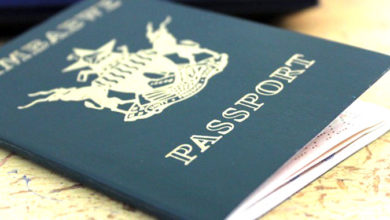Covid-19: Beitbridge’s 22 unofficial ports of entry give Zimbabwe headaches

By Tumelo Nare
There are at least 22 unofficial entry points along the 200 kilometre Beitbridge borderline between Zimbabwe and South Africa, which poses a huge risk of Covid-19 cross border infections because of the high level of human traffic, investigations have revealed.
The festive season has seen an influx of Zimbabweans using both the official Beitbridge port of entry and several illegal entry points dotted along the Limpopo River at a time the neighbouring country says it has discovered a new variant of the coronavirus that is spreading faster than the previously known one.
According to statistics, South Africa is the Covid-19 hotspot in the region with 72 percent of the cases.
To control the spread of the coronavirus, most of the countries in the region closed their borders to human traffic between the end of March and end of November.
Recently released findings of an International Organisation for Migration (IOM) population mapping survey carried out in October, however, show that the closure of the Beitbridge border could have done little to stop the flow of illegal immigrants between the two countries as people resorted to established unofficial ports of entry.
The identified 22 illegal entry points remained a hive of activity amid fears the numbers of people arriving illegally in Zimbabwe from South Africa will increase during the festive season and fuel a spike in Covid-19 cases.
No regard for WHO protocols
IOM said people that use the illegal entry points do not adhere to World Health Organisation (WHO) recommendations to stop the spread of Covid-19, hence the risk.
“The 200 kilometre border line between South Africa and Zimbabwe, which is along the Limpopo River, is porous,” says the report.
“The participants and key informants from the communities chronicled the hive of activities that occur at the unofficial points of entry, which are dotted along Limpopo River.”
Some of the identified areas with the highest volumes of people crossing the border were Spillway and Tshikwarakwara where as many as 200 illegal immigrants are handled per day.
There is also Lamidzi, ZZ2, Gates 1 to 10 and Maroyi that had 100 people crossing the border per day at the height of the lockdown.
It was discovered that the unofficial points of entry have been in existence for decades and have created an informal economy for some locals in Beitbridge.
The informal economy consists of smugglers, people selling food, accommodation and transport as well as facilitating the passage of smuggled goods, contraband and irregular migrants.
It is the high volume of illegal immigrants, even from other parts of Africa, which has heightened fears of a spike in Covid-19 cases in Zimbabwe and beyond.
Beitbridge is the gateway to many southern and east African countries that include Zimbabwe, Malawi, Mozambique, Democratic Republic of Congo, Zambia and Tanzania.
“There are high chances that the activities at the informal ports of entry and nearby congregation areas may increase the cross border Covid-19 infections between Zimbabwe and South Africa,” IOM said.
“There are high chances that the activities at the informal ports of entry and nearby congregation areas may increase the cross border infections between Zimbabwe and South Africa.”
It added that: “The factors that contribute to increased Covid-19 transmission within unofficial points of entry include lack of Covid-19 screening mechanisms, no sanitation, lack of water sources and lack of personal protective equipment, including masks.”
Smuggled bodies heighten Covid-19 fears
More worryingly, the investigations discovered immigrants from other African countries were using the illegal Beitbridge crossing points to transport bodies of their relatives, who would have died in South Africa for burial back home.
“Moreso, the assessment team was informed that some of the migrants clandestinely use the unofficial points of entry to repatriate the human remains of their late relatives,” IOM added.
“This poses a serious risk to the communities, as there are no guarantees on whether death was a result of Covid-19 and whether the burial or body handling will be conducted according to World Health Organisation standards on suspected Covid-19 cases, in case of Covid-19 related deaths,” IOM added.
The bodies are transported to as far as the Horn of Africa, the report says.
“The major routes for migrants through Beitbridge include of the migrants from Democratic Republic of Congo, who transit through Zambia or Mozambique then Zimbabwe with destination intention of South Africa and followed by migrants moving from the horn of Africa, including Ethiopia, Somalia and Tanzania, moving from Zambia or Malawi onwards to South Africa,” IOM said.
“Furthermore asylum seekers mainly transit through Zimbabwe or stay to make their asylum application.”
Brisk business from illegals
Tererai Zhou, a pirate taxi operator from the Litumba settlement near Beitbridge town, said he has been in the business of transporting illegal immigrants for the past 15 years.
“There is nothing new about those reports of illegal crossing points,” Zhou said.
“I have been living here for the past 15 years and every day I transport up to 30 people travelling between Zimbabwe and South Africa via Limpopo River even during the early days of the lockdown.
“In fact this this year has been one of our busiest years in terms of business as people could no longer use the official border post.
“The only thing that can slow us now is the flooded Limpopo River because of the heavy rains.”
Transporters are using inflatable boats to cross the flooded river and it is business as usual at the cross points.
The festive mood in Litumba is testament to the fact business is roaring for the human traffickers, who can be easily identified with their pirate taxis parked at various spots at the business centre.
Litumba is a sprawling settlement along the Beitbridge-Chirundu highway and according to Zhou most businesspeople in the area rely on illegal immigrants as it is the first port of call from Limpopo River before they travel inland.
“These businesses won’t be here if it were not for those illegal entry points,” he added.
Why Zimbabwe is worried
Health experts, however, warn that the illegal ports of entry present Zimbabwe with a huge challenge in its efforts to combat the spread of Covid-19.
Beitbridge has poor health infrastructure and detection of the coronavirus outside the official port of entry would be near impossible, the experts say.
Health and Child Care ministry’s director of epidemiology and disease control Portia Mananganzira said reports that bodies were being smuggled across the border were worrying.
“The border with South Africa, which currently has almost half of the cases and deaths is used by thousands of Zimbabweans, who are deported or return home, meaning that there is constant injection of new infections,” Mananganzira said.
“There has been reported smuggling of people and bodies at the designated and undesignated crossing points and these largely defy the Covid-19 preventative measures.”
Both Zimbabwean and South African law agencies have in recent weeks been launching operations to intercept illegal immigrants to stem the tide, but transporters like Zhou are not losing any sleep.
“We work with the police and soldiers deployed across the border on both sides,” he said.
“One only needs to make sure that they some bit of money on them in case they are intercepted and we are not talking of too much money, 200 rand can buy you freedom and that cost is already covered by our clients anywhere.”
As of December 22, Zimbabwe had 12 544 Covid-19 cases with 326 deaths.
The country has also been recording an increase in the number of returnees from South Africa are testing positive with 17 such cases recorded on December 22.






